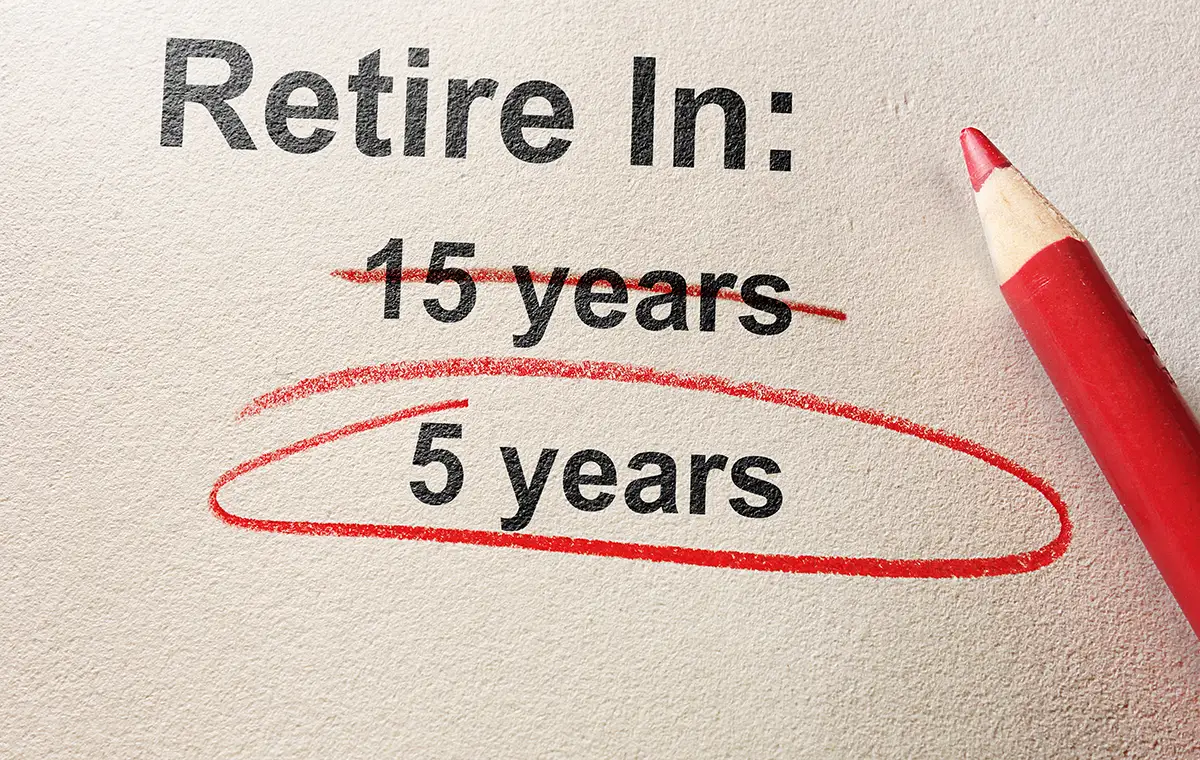What is the advantage of investing for retirement early? (+ examples)
What is the advantage of investing for retirement early? (+ examples) It’s an exciting time of your life when you’re between 25 and 35 years old:...
5 min read
 Joel Holden
:
Jan 11, 2024 10:30:00 AM
Joel Holden
:
Jan 11, 2024 10:30:00 AM

If you’re reading this right now, and you’re in your 30s, I am willing to wager that you get in the abstract sense why planning early for retirement is important — you’ve probably even got older, wiser folks around you reinforcing that to you, as well.
“You’ve gotta get started retirement planning now.”
“Trust me, I wish I had started earlier.”

However, when you’re in your 30s, retirement can feel very far away. Yes, retirement planning is important, but you may be wondering if it’s important right now, when you’re still so young? The short and sweet answer is yes, it is.
🔑 Free resource: Financial planning template for individuals and families
Even with everything happening in the world today, which makes it harder to maintain perspective — with the ability to connect the dots between today and 30 to 40 years from now — retirement planning is something you should focus on as soon as possible.
In these nascent stages of retirement planning, your goal is to establish good behaviors. In fact, 90% of successes and failures when it comes to personal finance for Americans comes down to behavior around money. When we say “behavior around money,” what we mean is how you treat, think, and feel about money. So, the earlier you start this self-mastery process around your relationship with money, the greater your chances for success in saving for your post-professional years.
Incentivizing yourself in your 30s to do this financial behavioral work will require you to take a critical first step.
Maybe your “why” is you want to spend your golden years at the beach. Perhaps you want to travel the world, or volunteer for causes that are close to your heart. Or maybe you’re like me, where you’re thinking about retirement more in terms of financial freedom — more specifically, you want to save enough so you afford yourself the freedom and flexibility to not have to trade your time for money.
🔎 Related: What is the advantage for retirement early (+ examples)
We are built and created to have a purpose, to have a “why.” We’re built to work, we’re built to be productive members of society, we’re built to contribute in some way — to society as a whole, to our communities, and to our families.
That’s why your first step is to define the “why” that will fuel everything you do going forward in service of your retirement plan. Not sure where to start? Pretend for a moment that you woke up tomorrow and you’ve won $500 million. What would you do? Technically, you don’t have to work anymore; you no longer have to trade your time for money.
What does your ideal state look like? I know, it’s a wild and completely improbable thought experiment. But, in our 30s, we are not trained to think outside of the box, outside of the norms of working hard to establish ourselves in our careers. That’s why it’s important to challenge yourself in this way.
Once you have some idea of what it is you’re building toward in retirement — don’t worry if it changes down the line, all that matters is you’re starting somewhere — your next step isn’t to focus on saving. Instead, your next goal is to build your overall economic household picture.
🔎 Related: Tax savings strategies for high income earners (+ examples)
For example, you could be a person who has an income that will support all of your living expenses and allow you to max out an IRA every single year; that’s going to be roughly at or less than $650 per month. Now, let’s say your income in this scenario is about $500,000 per year. Between your mortgage, country club memberships, leases, and all of those other types of lifestyle expenses, the cost for you to just live is around $20,000 per month.
For some of you out there, you may think these numbers are absurd or outlandish. But I picked these numbers to illustrate a specific point. You will never accumulate enough in an IRA at $650 per month to support a $20,000 per month lifestyle. The math doesn’t math, it simply won’t work.
Most folks operate under the assumption that, “If I can afford it on a cash flow basis, it’s fine.” In reality, that’s not a long-term way to think about money; you’re stretching your capacity so thin that you’ll make it impossible to save or develop a sound financial plan. You’re consuming more than you’re saving, which is something that can happen all too easily.
A good general rule of thumb is 10% for charitable giving, 10% savings, 20% to 40% in housing (depending on who you ask), and the rest is disposable income. Your goal here is to strike the balance between consumption today and deferral to later.
So, in your 30s, the name of the game isn’t really about saving and more about managing the economics of your household. Are you over-consuming? Are you overspending? What needs to be rebalanced?
For some of you out there, you may not just be planning for your own future. You may have a family. You may have children for whom you want to provide opportunities, particularly in the form of higher education and tuition.
🔎 Related: How to choose a financial advisor (tips + questions to ask)
Don’t worry, I’m not about to tell you what great parenting should look like, in the context of paying for college. However, if you are thinking about this for your children, keep in mind that financial planning is a lot about doing what is hard now in order to reap the rewards later on.
That means you need to be mindful that over-giving to your children now can create unforeseen, unintended financial consequences down the road. For instance, if you don’t set yourself up well for retirement, your children may end up having to take on the responsibility of taking care of you.
Before you succumb to the comparison game of what your parents may have done for you, I want you to keep one important fact in mind:
“In 1980, the price to attend a four-year college full-time was $10,231 annually — including tuition, fees, room and board, and adjusted for inflation — according to the National Center for Education Statistics. By 2019-20, the total price increased to $28,775. That’s a 180% increase.”
There’s a huge difference between parents in the 1980s and 1990s saving for their kid’s college education than today.
Again, I know it’s hard to emotionally connect with the idea of retirement so early on in life. But the more purposeful thought and foundation-building you put into retirement planning now, the better off you’ll be in future.
🔎 Related: Asset vs. wealth management (What’s the difference?)
Make it a point to develop a good understanding of your finances and where they are today. You need to know where every dollar you make comes from and where every dollar you spend goes. These are the fundamental building blocks of your financial foundation, so you can see clearly where you need to make changes.
Then take a look at what tools you have available to you:
You have to understand the current resources you have to build with, and you have to understand the tools you have available to go along with those resources.
If you want to shorten your learning curve, I’d suggest you have a conversation with a financial planning professional. They can walk you through much of what we just discussed — thinking about and defining your long-term goals, evaluating your current financial picture, and so on. They can also illuminate different options you may have at your disposal. If you’re going to go through the effort of understanding the outcome you’re looking to achieve, your resources, as well as all the tools, it makes sense to talk to somebody who does it all every day to make sure you’re not missing something.
Remember, you're at the beginning of this retirement planning journey. The only mistake you can make right now is not starting. All you need to do right now is begin, and ask for help if you need it.

What is the advantage of investing for retirement early? (+ examples) It’s an exciting time of your life when you’re between 25 and 35 years old:...

1 min read
As the title implies, you’re here because you want to develop a deeper understanding of what the true risks of investing are, and this may be for a...

I’ll be honest, I get excited when folks like you come to me with questions like this. You’re at a point in your life where you are thoughtfully...

What are investable assets? (definition + examples) If your financial literacy journey has led you here to our virtual doorstep to learn about what...

Tax savings strategies for high income earners (+ examples) If you're here, you are most certainly not looking for a leisurely read to pass the time...
.png)
You worked hard all your life, and now you’re retired. Congratulations, you’ve more than earned it! Are you comfortable? Yes, but you know you could...